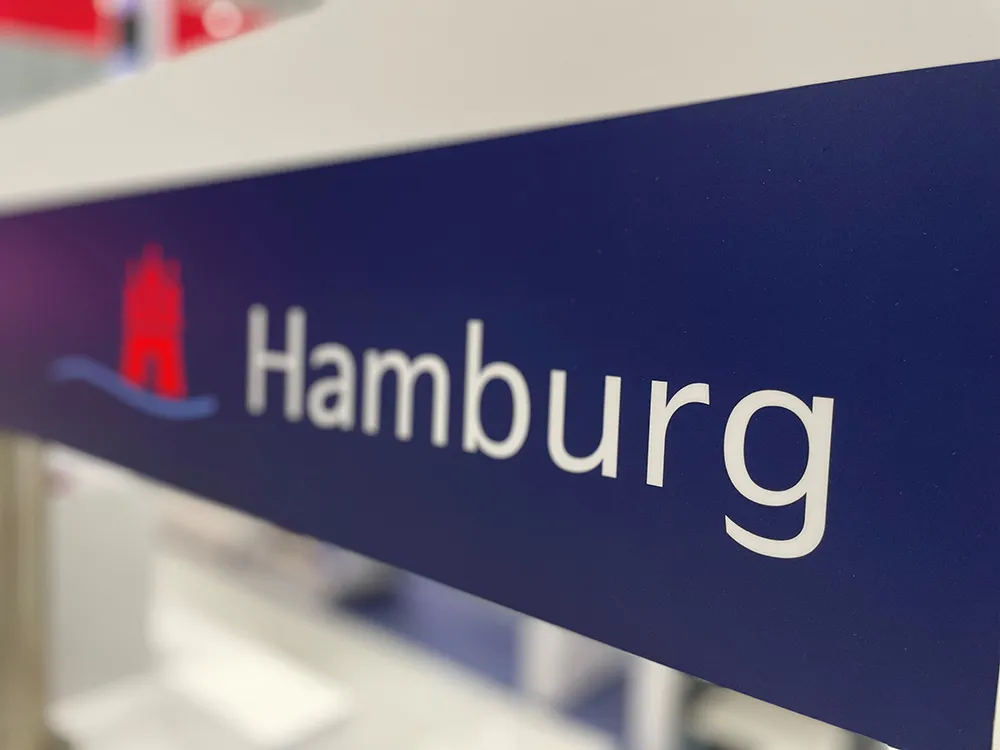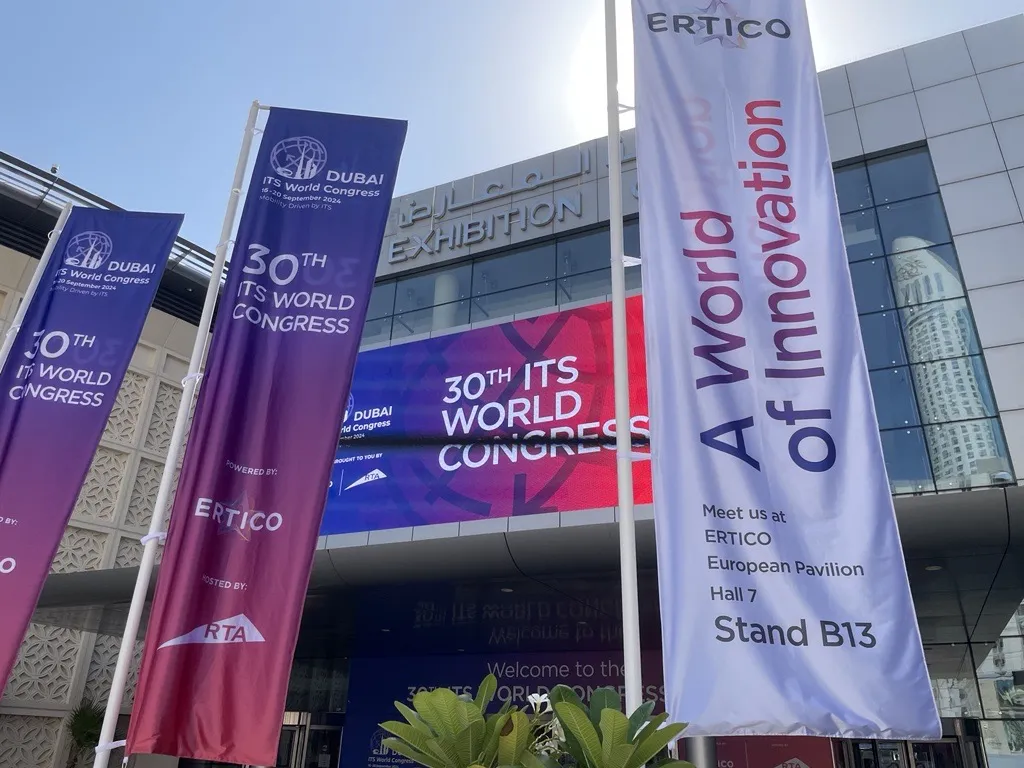Finland’s technical research centre’s (VTT) TransSmart vision of a model country for sustainable transport throws the spotlight on efficiency – in vehicles, systems, and services. It says transport will be a fusion of sustainable energy sources, advanced technology, safety, high service levels, mobility alternatives and new ways of operating.
According to VTT, Finland in 2020 will use low-emission vehicles running on renewable energy, electricity, hydrogen and sustainable bio-fuels. The share of public t
June 18, 2014
Read time: 3 mins
Finland’s technical research centre’s (814 VTT) TransSmart vision of a model country for sustainable transport throws the spotlight on efficiency – in vehicles, systems, and services. It says transport will be a fusion of sustainable energy sources, advanced technology, safety, high service levels, mobility alternatives and new ways of operating.
According to VTT, Finland in 2020 will use low-emission vehicles running on renewable energy, electricity, hydrogen and sustainable bio-fuels. The share of public transport and car pooling in densely populated urban areas will increase. Mobility arranged through easy-to-use services will become a viable alternative to buying a private car.
“Fine-tuning vehicles or developing renewable fuels will simply not be enough in the long run. The entire system needs revamping. You won't make the world a better place by filling Helsinki with electric cars, for example. They take up just as much room as conventional cars running on petrol or diesel. The ways to achieve change will be through increasing the share of public transport, and rethinking mobility and logistics services to include the views of the people who need the services,” VTT’s Research Professor and TransSmart programme manager Nils-Olof Nylund says with emphasis.
“Smart transport solutions create more efficient travel- and logistics chains and an overview of the status of the transport system in real-time. The idea is that the travellers will be able to select several service options and to easily combine them into suitable travel chains: private car, on foot, bicycle, bus, taxi, demand responsive transport, carpooling, car and transport joint use, tram, metro, train or aeroplane. This would lead to a reduced need for car ownership or for the construction of parking spaces and streets. The crux of the idea is to achieve an increase in the fluency, ease of use and accessibility of travel chains. Service accessibility also covers safe and trouble-free payment,” says senior scientist Raine Hautala, leader of the TransSmart programme's Transport Services theme.
VTT forecasts that an increasing number of new cars in 2020 will run on renewable energy, while the growing share of new car sales taken up by electric cars will have reached 10–15 per cent. Rechargeable hybrids will be a particular favourite.
Electrification of bus traffic has already begun, and by 2020 the estimate is that more than 100 electric buses will be operating in the Helsinki metropolitan area.
New plants producing sustainable bio-fuels have already come on stream in Finland and a downward turn is discernible in transport energy consumption. The national 2020 target for 20 per cent bio-fuels by 2020 has already been met.
VTT is also actively involved in other projects such as the smart transport corridor between Helsinki and St Petersburg, the EU Drive C2X project, the European eCall system and the Finnish Road Weather Excellence project.
“Smart transport is generating a lot of interest, but we need to wait a little before we see the scale on which profitable business begins to materialise for Finland. Companies will need to be capable of developing internationally competitive products and services,” key account manager Karri Rantasila points out.
According to VTT, Finland in 2020 will use low-emission vehicles running on renewable energy, electricity, hydrogen and sustainable bio-fuels. The share of public transport and car pooling in densely populated urban areas will increase. Mobility arranged through easy-to-use services will become a viable alternative to buying a private car.
“Fine-tuning vehicles or developing renewable fuels will simply not be enough in the long run. The entire system needs revamping. You won't make the world a better place by filling Helsinki with electric cars, for example. They take up just as much room as conventional cars running on petrol or diesel. The ways to achieve change will be through increasing the share of public transport, and rethinking mobility and logistics services to include the views of the people who need the services,” VTT’s Research Professor and TransSmart programme manager Nils-Olof Nylund says with emphasis.
“Smart transport solutions create more efficient travel- and logistics chains and an overview of the status of the transport system in real-time. The idea is that the travellers will be able to select several service options and to easily combine them into suitable travel chains: private car, on foot, bicycle, bus, taxi, demand responsive transport, carpooling, car and transport joint use, tram, metro, train or aeroplane. This would lead to a reduced need for car ownership or for the construction of parking spaces and streets. The crux of the idea is to achieve an increase in the fluency, ease of use and accessibility of travel chains. Service accessibility also covers safe and trouble-free payment,” says senior scientist Raine Hautala, leader of the TransSmart programme's Transport Services theme.
VTT forecasts that an increasing number of new cars in 2020 will run on renewable energy, while the growing share of new car sales taken up by electric cars will have reached 10–15 per cent. Rechargeable hybrids will be a particular favourite.
Electrification of bus traffic has already begun, and by 2020 the estimate is that more than 100 electric buses will be operating in the Helsinki metropolitan area.
New plants producing sustainable bio-fuels have already come on stream in Finland and a downward turn is discernible in transport energy consumption. The national 2020 target for 20 per cent bio-fuels by 2020 has already been met.
VTT is also actively involved in other projects such as the smart transport corridor between Helsinki and St Petersburg, the EU Drive C2X project, the European eCall system and the Finnish Road Weather Excellence project.
“Smart transport is generating a lot of interest, but we need to wait a little before we see the scale on which profitable business begins to materialise for Finland. Companies will need to be capable of developing internationally competitive products and services,” key account manager Karri Rantasila points out.









